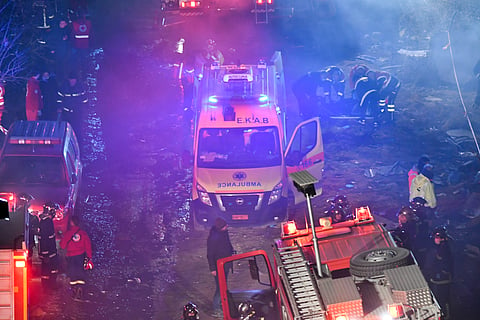

Violence flared in Athens on Friday as thousands of protesters took to the streets to demand justice on the second anniversary of Greece’s worst train disaster, which claimed 57 lives. Demonstrators clashed with police, throwing petrol bombs and setting fire to trash cans, while nationwide strikes brought the country to a standstill.
The tragedy occurred on February 28, 2023, when a passenger train carrying hundreds of students collided with a freight train in central Greece. The crash has since become a symbol of the country’s long-standing infrastructure neglect, with an official inquiry revealing that critical safety issues remain unaddressed and no one has been held accountable.
Nationwide Strikes Paralyze Greece
The protests coincided with a massive 24-hour strike that shut down government services, banks, and businesses across the country. Ships remained docked, trains were halted, and flights were grounded, marking the largest nationwide stoppage since the height of Greece’s financial crisis over a decade ago.
The Hellenic Air and Rail Safety Investigation Authority stated on Thursday that Greece’s rail safety culture was already plagued by outdated practices and poor management. However, the agency noted that the situation worsened after the 2009 financial crisis, when severe austerity measures led to staff cuts and deteriorating equipment at the state-owned Hellenic Railways Organisation (OSE).
Allegations of Negligence and Cover-Ups
Critics have accused successive governments of failing to address systemic issues within the rail network. A 2014 EU-funded contract, known as Contract 717, aimed to install safety equipment across the rail network, but nine years later, the project remains incomplete.
The ruling conservative New Democracy party has also faced allegations of attempting to cover up the causes of the crash. A recent survey conducted by Alpha TV found that 72% of respondents believe the government tried to obscure the truth, including more than 40% of the party’s own voters.
Public trust in the judicial investigation is also low, with 67% of respondents saying they have little or no confidence in the process. Additionally, 81% believe the government has not done enough to improve rail safety since the disaster.
The protests and strikes underscore growing public anger over the perceived failure of Greece’s political elite to address systemic failures and deliver accountability for one of the country’s most devastating tragedies.